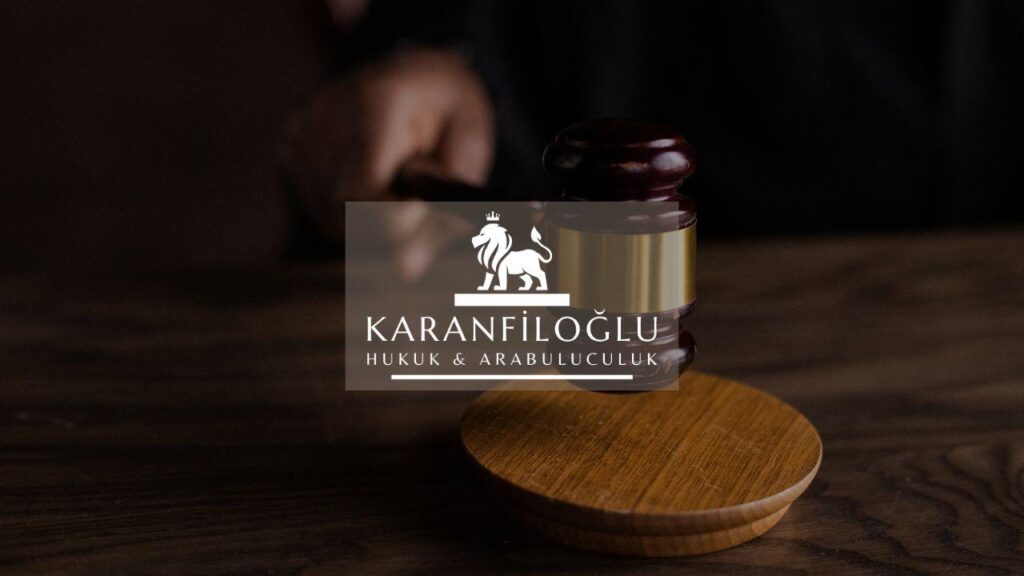Navigating the intricacies of consumer law can often be a daunting task for both purchasers and businesses in Turkey. At Karanfiloglu Law Office, we recognize that disputes arising from consumer transactions can be both time-consuming and costly. As an effective alternative to traditional litigation, mediation offers a streamlined and efficient approach to resolving such conflicts. This consensual process not only saves time and legal expenses but also aims to find mutually satisfactory solutions for the parties involved. In this post, we will delve into the benefits and procedures of mediation in the context of consumer law, providing you with a comprehensive understanding of how this method can serve as a pragmatic solution for your legal needs.
Understanding the Mediation Process in Consumer Disputes in Turkey
Mediation in consumer disputes in Turkey begins with the initiation of a request by either party involved in the conflict. The process is voluntary and allows both the consumer and the business to cooperatively engage in discussions facilitated by a neutral, third-party mediator. This mediator, who is often a certified legal professional with expertise in consumer law, helps the parties communicate their concerns and work towards a mutually agreeable resolution. Unlike court procedures, mediation sessions are confidential, which ensures that all discussions remain private and encourages open communication. The primary goal is to achieve a fair settlement without the need for protracted legal battles, thus saving both time and resources for all parties involved.
Once a mediation request is initiated, the parties typically select a mediator from a list approved by the Turkish Ministry of Justice or local bar associations. The mediator then arranges an initial meeting where the process, rules, and expectations are outlined to ensure transparency and understanding. Each party has the opportunity to present their side of the dispute, articulate their preferences, and discuss their desired outcomes. The mediator’s role is to facilitate dialogue, identify common ground, and guide the parties toward a resolution. If an agreement is reached, it is documented in a settlement agreement, which, once signed, holds the same legal weight as a court verdict, ensuring enforceability. In cases where mediation fails to produce an agreement, parties retain the right to pursue traditional litigation.
The benefits of utilizing mediation in consumer disputes extend beyond mere time and cost savings. By engaging in this cooperative process, both consumers and businesses can maintain ongoing relationships and build mutual trust, which are often strained in adversarial court settings. Mediation not only allows for creative solutions that may not be available through litigation but also empowers both parties to take an active role in the resolution of their conflict. Additionally, the flexibility and human touch offered by mediation create a more adaptable and responsive environment, tailored to the specific needs of the disputants. At Karanfiloglu Law Office, our seasoned mediators are committed to guiding clients smoothly through this process, ensuring effective communication and striving to reach amicable settlements that uphold the rights and interests of all parties.
Key Benefits of Mediation for Consumers and Businesses
One of the key benefits of mediation in consumer law is its ability to preserve relationships between the parties involved. Unlike adversarial litigation, where the focus is on winning and losing, mediation emphasizes cooperation and mutual understanding. This approach not only reduces emotional stress but also fosters a more amicable resolution. By maintaining open lines of communication, consumers and businesses can often reach agreements that satisfy both parties’ interests, thus enhancing customer satisfaction and promoting long-term trust. Consequently, mediation can lead to more sustainable and constructive outcomes, benefiting both consumers and businesses by mitigating risks associated with prolonged disputes.
Another significant advantage of mediation in consumer law is its cost-effectiveness. Traditional litigation can be an expensive process, involving court fees, attorney fees, and other associated costs, which can quickly escalate. Mediation, on the other hand, typically requires fewer resources and less time, making it a more affordable option for both consumers and businesses. Furthermore, mediation sessions are often scheduled at the convenience of the parties involved, which can lead to quicker resolutions. This efficiency not only conserves financial resources but also allows both parties to focus on recovering from the dispute and returning to business as usual. By choosing mediation, clients of Karanfiloglu Law Office can keep legal costs in check while achieving satisfactory and timely resolutions.
In addition to preserving relationships and reducing costs, mediation offers a level of confidentiality that is often unattainable in traditional court settings. Legal proceedings are typically public, allowing details of the dispute to be accessed by anyone, which could potentially harm the reputations of both consumers and businesses. Mediation, however, is a private process; the discussions and any agreements reached remain confidential between the parties involved. This discretion ensures that sensitive information is not disclosed and that both parties can negotiate openly without the fear of public scrutiny. By opting for mediation, clients of Karanfiloglu Law Office can address and resolve their disputes in a secure environment, safeguarding their privacy and upholding their professional integrity.
How to Prepare for a Mediation Session in Consumer Law Cases
Preparing for a mediation session in consumer law cases requires a well-thought-out approach to maximize the chances of reaching an amicable settlement. Start by gathering all relevant documentation pertaining to the dispute, such as purchase receipts, contracts, correspondence with the other party, and any other evidence that supports your position. This helps establish a solid foundation for your arguments during the session. Additionally, it’s crucial to identify your key objectives and areas where you may be willing to compromise. Clear goals and a flexible mindset can facilitate a more constructive dialogue. Engaging the services of a qualified legal advisor, such as those available at Karanfiloglu Law Office, can also provide invaluable guidance and representation, ensuring that your rights are adequately protected throughout the mediation process.
Another important aspect of preparation is understanding the mediation process itself. Familiarize yourself with the stages of mediation, which typically include the opening statement, joint discussion, private caucus, and the negotiation phase. Knowing what to expect at each stage can help alleviate any anxiety and allow you to participate more effectively. It’s also beneficial to think from the perspective of the other party to anticipate their arguments and prepare counterpoints. During the mediation session, it is advisable to communicate clearly and remain composed, focusing on interests rather than positions. By doing so, you can contribute to a more collaborative environment and increase the likelihood of reaching a resolution that satisfies both parties.
Lastly, it’s essential to develop a realistic and practical strategy for the mediation session. Setting an appropriate tone by being respectful and open-minded can pave the way for a more productive discourse. Time management during the session is also crucial; prioritize discussing the most critical issues first and allocate adequate time for each agenda item. Be prepared to explore creative solutions that may not have been initially considered, as mediation allows for more flexibility compared to traditional litigation. Additionally, make sure to review and comprehend any proposed settlement agreements thoroughly before finalizing them. At Karanfiloglu Law Office, our experienced mediators can assist you in structuring and implementing a strategy tailored to your specific case, ensuring that you are well-positioned to achieve a favorable outcome.
Disclaimer: This article is for general informational purposes only and you are strongly advised to consult a legal professional to evaluate your personal situation. No liability is accepted that may arise from the use of the information in this article.







